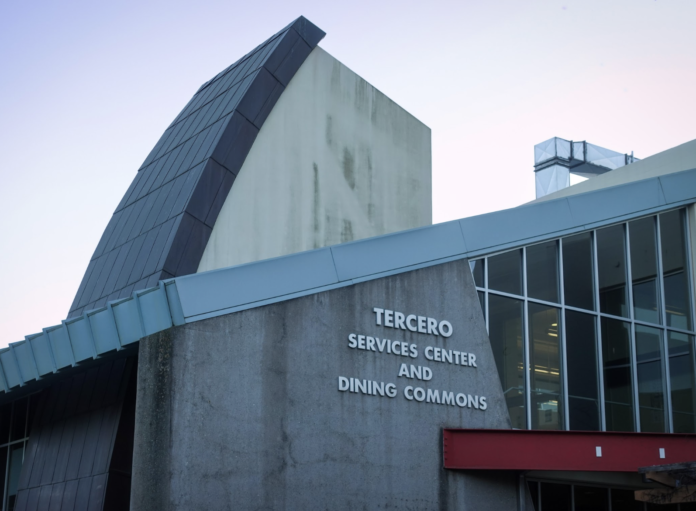Students shared feedback on the current state of dining and possible improvements
By AALIYAH ESPAÑOL-RIVAS — campus@theaggie.org
On Jan. 26, the UC Davis Student Housing and Dining Services hosted three student focus groups for the first phase of their “Dining Reimagined” project. Held in the Segundo Dining Commons, students across different years and housing locations — on- and off-campus living — were invited to give feedback on what the dining commons could be doing to improve the student dining experience.
“Dining Reimagined” has been in the works for the past two years, created after student input was given to create the Latitude restaurant, according to Richard Ronquillo, head of marketing for Housing and Dining Services at UC Davis.
“Latitude was our first real facility that was really designed to meet a specific need from our students,” Ronquillo said. “Students really expressed that they wanted to have more international cuisine […] For some students, they wanted the experience, […] and for some, they wanted a taste of home.”
Kraig Brady, the executive director of Dining at UC Davis, said that “Dining Reimagined” looks to the future of dining on campus, with the help of student input to implement both short and long-term changes to improve the dining hall experience.
“[‘Dining Reimagined’] is a collaboration with the campus and student community,” Brady said. “We want to [bring forth] a service provider program that is totally cohesive and collaborative with the community.”
For Maya Leonard, a first-year communications and fashion design double major, attending the focus group was important to her because she wanted to get more involved in the community.
“I came to this group because I had ideas [to improve dining on campus],” Leonard said. “I’m trying to make people get involved and put their ideas out there, because if it’s not out in the world, it’s not going to happen.”
Leonard’s main concern was to voice against the recent change of operating days for both the Cuarto and Tercero Dining Commons, leaving Segundo as the only open dining commons on the weekend.
“I feel so bad for people who don’t live in Segundo because they have to walk or bike so far to come here on the weekends,” Leonard said. “It’s not sustainable to be able to eat three meals a day and be healthy.”
However, the focus groups are only one small part of the overarching project. Ronquillo has also reached out to the Cross Cultural Center to discuss how the dining commons can better represent the needs of cultural groups. With these conversations, many events have since been hosted to support cultural groups.
“If there is feedback that we could incorporate from some of the cultural groups, we’ve tried to do it if we could,” Ronquillo said. “To support Native American programming, we brought in Chef Freddy, a Navajo chef, […] and [on Jan. 26] in conjunction with the Cross Cultural Center, we’re bringing in Chef Martin Yan for Lunar New Year.”
Looking towards the future, Ronquillo hopes the feedback gained from the focus groups will help guide strategies to meet students’ needs.
“The goal is to try and condense and look at what the core feedback is, and start developing short-term and long-term strategies to help meet those particular needs,” Ronquillo said. “We know we’re going to stumble, we know that not everything is always going to be perfect, but we’re striving to be better.”
Furthermore, Ronquillo hopes students will continue to give their thoughts to further help the dining commons evolve and decrease stress surrounding food.
“We hope to come up with the process by which we could continue to get student feedback so that long term, we can always evolve with our students, because that is our biggest challenge,” Ronquillo said. “‘Dining Reimagined’ is all about evolving with our students so that we can make dining the least stressful part of their day.”
While upcoming events have yet to be announced following the focus groups, Leonard is hopeful that change will come from the conversations.
“UC Davis really wants to make sure students are getting the [best] experience we can,” Leonard said. “Even if change doesn’t happen tomorrow, it’ll happen next week, or next month or next year, and you can improve the experience for the people coming after you.”
Written by: Aaliyah Español-Rivas — campus@theaggie.org









